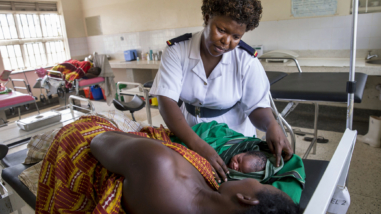Center for Rapid Evidence Synthesis
For General Operating Support
-
Amount$1,000,000
-
Program
-
Date Awarded6/24/2024
-
Term26 Months
-
Type of SupportGeneral Support/Organization
Overview
The Center for Rapid Evidence Synthesis is a Ugandan nonprofit organization that works to ensure timely access to quality and relevant evidence for policy and decision making. It brokers knowledge to support and respond to urgent needs for evidence as an input into policy- and decision-making processes. The center aims to deepen its partnership with select government agencies in Uganda, working to infuse evidence into specific decisions and building government counterparts’ capacity and systems to use evidence. (Strategy: Evidence-Informed Policymaking)
About the Grantee
Grantee Website
acres.or.ug/en
Grants to this Grantee
for general operating support
The Center for Rapid Evidence Synthesis is a Ugandan nonprofit organization that works to ensure timely access to quality and relevant evidence for policy and decision making. It brokers knowledge to support and respond to urgent needs for evidence as an input into policy- and decision-making processes. The center aims to deepen its partnership with select government agencies in Uganda, working to infuse evidence into specific decisions and building government counterparts’ capacity and systems to use evidence. (Strategy: Evidence-Informed Policymaking)
for the promotion of an evidence-informed decision-making culture in Uganda
This grant supports the Center for Rapid Evidence Synthesis, which provides rapid response services, synthesizing research quickly enough for policymakers to consider this information when making time-sensitive decisions. With this grant, the center’s team will deepen their partnership with select government agencies in Uganda, working to infuse evidence into specific decisions, and building government counterparts’ capacity and systems to use evidence. They will also train and mentor other research centers that produce rapid response work and build tools to better measure the impact of rapid evidence synthesis work. (Strategy: Evidence-Informed Policymaking)


